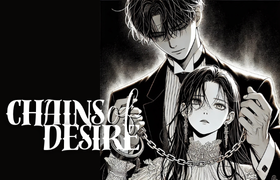It had been years since Min-jae returned to Korea, and in that time, his world had shifted beyond recognition. His research in economics, once a way to pass the time, had evolved into a legacy that was now imprinted in global academia. He had long since completed his PhD at Harvard, and now, he stood among the intellectual giants of the world.
His groundbreaking work on behavioral economics and market psychology had not only made waves in academic circles but had also caught the attention of policymakers, CEOs, and industry leaders across the globe. The theories he developed and the innovative models he proposed were hailed as transformative, pushing the boundaries of how economic theory interacted with real-world applications. As a result, his name had become synonymous with excellence, precision, and intellect.
Min-jae had become one of the top 1% researchers in the world. His papers were among the most cited in his field, and his influence reached far beyond the walls of academia. When the Nobel Prize in Economic Sciences was announced, it was not a surprise to anyone who had followed his work closely. Min-jae was awarded the Sveriges Riksbank Prize in Economic Sciences in Memory of Alfred Nobel—an honor that solidified his place in history.
The Nobel Prize ceremony was held in Stockholm, and Min-jae, true to his solitary nature, attended alone. There was no entourage, no media frenzy—just him, a lone figure in a sharp suit, standing in front of the world’s most accomplished economists and dignitaries.
The applause was thunderous when his name was called, but Min-jae didn’t revel in it. He had long since shed the need for external validation. The recognition was not for him—it was for the research, the theories, the years of work that had gone into reshaping the economic landscape. He accepted the award with a polite nod, his face betraying little emotion.
The entire affair lasted only a few hours, and as soon as the ceremony concluded, Min-jae disappeared once again. His absence did not cause much of a stir internationally—he was a man of focus, not spectacle. He returned to his hotel room, packed his bags, and took a flight back to the U.S., leaving no trace of where he had gone.
It wasn’t until several days later that his family learned of his award. Harvard University, in a rare move, posted a feature on their alumni page, proudly showcasing their Nobel Laureate. The business news networks soon followed suit, broadcasting the achievements of the young man who had gone from chaebol heir to a Nobel-winning economist.
The news hit like a bombshell in the Kang household. His mother, once so doting and nurturing, couldn’t believe it. Soo-bin, who had always been a perceptive observer, scrolled through the news with a quiet sense of awe. Min-jae, the lazy playboy she remembered, had been replaced with a global intellectual icon.
But it was his father, Kang Tae-hyun, who took the news the hardest. The chairman, who had longed to have his son by his side in the family business, felt betrayed. Min-jae had not only disappeared again but had also managed to climb to the highest peaks of academia without ever once considering the family legacy.
Kang Tae-hyun stormed into Min-jae’s room that night, his face red with fury. The moment Min-jae walked through the door, having just returned from the airport, his father’s voice thundered through the house.
“You think you can keep disappearing on me?” Tae-hyun’s voice was low, simmering with anger. “You win a Nobel Prize, and this is how you come back? After everything I’ve done for you, you go off and do this... alone? As if your family doesn’t matter?”
Min-jae stood there, unaffected by the tirade. He set down his briefcase, his expression cool and calm, as always.
“Father, I didn’t ask for your approval. I don’t need it,” Min-jae replied tersely, his voice unwavering. “I’ve built everything I have on my own, without your help or anyone else's. The Nobel Prize isn’t for you to celebrate. It’s mine, and it’s for my work.”
His father’s face contorted with disbelief. “You could’ve had everything—the family business, the connections, the legacy. Instead, you choose to live like this... a shadow of who you could’ve been.”
Min-jae met his father’s gaze, unblinking. “Who I could’ve been? You never gave me the chance to decide that. I became what I am because I chose to. Don’t expect me to fall in line now because you want me to.”
His father’s anger flared, but Min-jae didn’t flinch. There was nothing left to say.
“I will not allow you to pull another disappearing act like this,” Tae-hyun snarled, his hands clenched into fists. “You’re a part of this family, and you will play your role.”
Min-jae’s voice was low but firm. “My role is mine to define, Father. You can’t control everything.”
With that, Min-jae turned away, leaving his father standing there, seething. The clash of ideologies had reached a boiling point, and for the first time in years, Min-jae felt the weight of his father’s expectations push him harder. But he refused to bend, knowing that what he had achieved—both as a researcher and as an individual—was all because of his own will.
His family, like his past, was something he had left behind. The prize he had won was not just for his work but for the man he had become—a man who no longer belonged to the past.












Comments (0)
See all